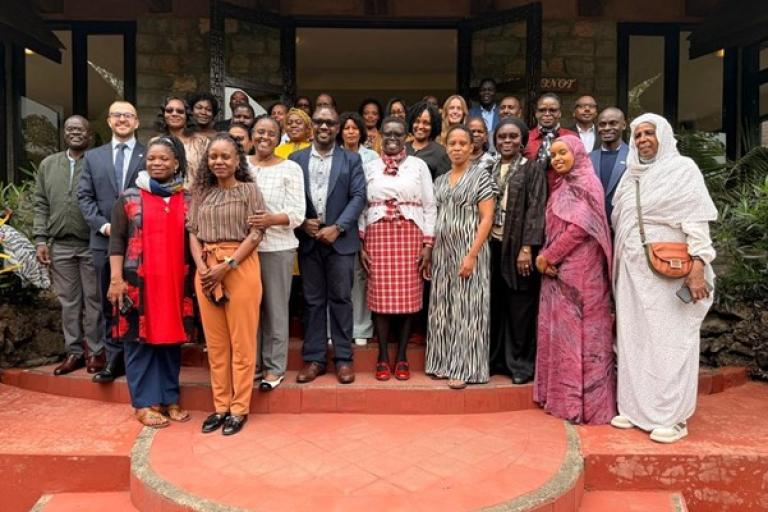Regional Training Strengthens Gender and Social Inclusion in Early Warning Systems Across East Africa
A Regional Training on Mainstreaming Gender and Social Inclusion in Early Warning Systems (EWS) was held in Naivasha, Kenya, from 30 September to 3 October 2025, bringing together over 30 participants from National Meteorological and Hydrological Services (NMHSs) and partner organizations across East Africa.

The training was co-organized by the World Meteorological Organization and UN Women, with financial support from the Climate Risk and Early Warning Systems (CREWS) initiative. Participants represented NMHSs and gender focal points from Burundi, Ethiopia, Kenya, Malawi, Rwanda, Somalia, South Sudan, Sudan, Tanzania, and Uganda, along with representatives from non-governmental organizations in Kenya.
The four-day training aimed to strengthen the integration of gender and social inclusion within weather and climate services and early warning systems. It forms part of ongoing collaboration under the CREWS East Africa and Horn of Africa projects to ensure that early warnings are inclusive, people-centered, and responsive to the needs of women, youth, persons with disabilities, and other vulnerable groups.
Throughout the week, participants explored practical tools, shared experiences, and developed roadmaps to make their national systems more inclusive. Sessions focused on gender-responsive leadership, social inclusion mapping, policy implementation, and participatory planning for gender-sensitive early warning strategies. Case studies—such as Malawi’s community-based early warning system—highlighted tangible benefits of integrating gender perspectives in climate and disaster risk management.
The workshop also provided space to review national gender and inclusion frameworks, identify gaps, and propose concrete steps for improvement. In practical sessions, participants drafted Gender and Social Inclusion Action Plans for their institutions and agreed on mechanisms to track progress using gender-disaggregated indicators and representation metrics.
Beyond the technical aspects, the training emphasized leadership and peer networking. Through coaching circles and interactive discussions, participants shared experiences and built a network of gender champions to promote equality within the meteorological and disaster risk reduction community.
The event concluded with participants presenting their draft action plans and reaffirming their commitment to advancing gender equality and inclusion in climate and early warning services. These plans will now guide national implementation and feed into regional coordination through the WMO Regional Association (RA) I Gender Focal Point Network.
- WMO Member:
- Kenya ,
- Burundi ,
- Ethiopia ,
- Rwanda ,
- Somalia ,
- South Sudan ,
- Sudan ,
- United Republic of Tanzania ,
- Malawi ,
- Uganda
- Region:
- Region I: Africa

